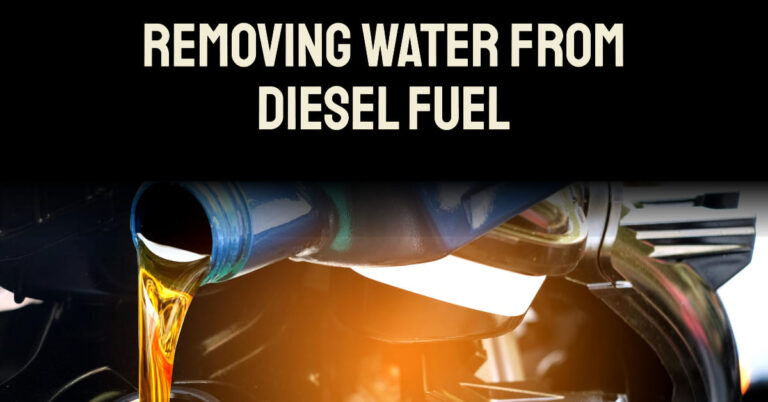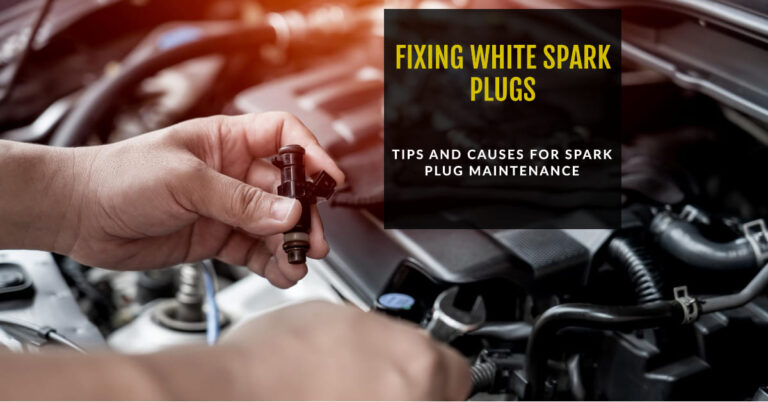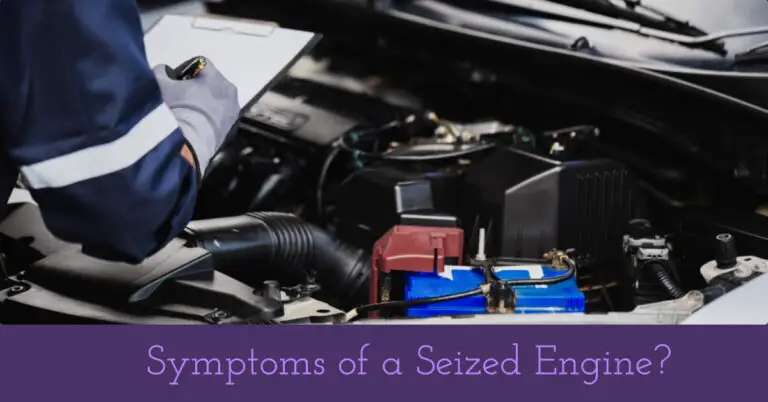What Happens If You Put Gasoline In A Diesel Engine? A Complete Guide

Have you ever wondered what would occur if you made the mistake of filling up your diesel vehicle’s fuel tank with gasoline instead of diesel fuel? Putting gasoline into a diesel engine can lead to serious consequences, ranging from immediate engine failure to extensive damage requiring expensive repairs down the road. This comprehensive guide will provide diesel owners with a thorough understanding of why gas and diesel engines differ, what precisely goes wrong when gas enters a diesel’s fuel system, how to recover if you’ve made this error, and proactive steps you can take to prevent ever mixing up your fuels.
Table of Contents
How Do Diesel and Gasoline Engines Work Differently?
Before jumping into the repercussions of running gasoline in a diesel engine, it’s important to understand some key differences in how these engine types function:
- Diesel engines rely on a combustion process known as compression ignition, meaning the fuel ignites due to heat and pressure generated from compressing air alone – no spark plug or ignition system is required.
- They operate by compressing air in the cylinder to very high pressures and temperatures, then injecting fine diesel fuel mist at just the right moment.
- When the hot compressed air meets the spray of pressurized diesel fuel, it spontaneously ignites without need for an external ignition source.
- In contrast, gasoline engines utilize a spark plug and ignition timing system to provide the external ignition source needed to trigger fuel combustion at precise intervals.
- Gasoline won’t combust the same way as diesel without this vital ignition system. Furthermore, diesel acts as a vital lubricant in fuel injectors and other components in a diesel engine. Let’s explore what happens when you remove this necessary lubrication while supplying the incorrect fuel.
What Occurs When You Put Gasoline in a Diesel Engine?
Adding the wrong type of fuel to any engine can mean serious mechanical trouble. However, pouring gasoline into a diesel engine takes this harmful scenario to the extreme given their fundamentally different operation. Here’s a breakdown of the chaos unleashed when gas enters a diesel motor:
- Fuel Contamination: The entire fuel system – including tanks, pumps, injectors and lines – immediately becomes contaminated. This leads to decreased performance and higher likelihood of corrosion or leaks.
- Failure to Properly Ignite: Without spark plugs, gasoline won’t combust from diesel compression alone. This causes misfires, stalling, and excessive cranking to start the engine.
- Engine Damage: Trying to run gasoline in a diesel also removes vital lubrication for key components like injectors and pumps. This increased friction can scuff cylinder walls, wear down rings, and distort or seize injector parts.
- Carbon Buildup: Because gasoline won’t ignite appropriately in a diesel motor, unburned fuel gets caked onto vital engine areas leading to high carbon accumulation and deposits. This buildup on components raises operating temperatures and reduces performance.
Clearly, even brief operation using the incorrect gasoline fuel in place of diesel leads immediately to fuel contamination issues, ignition failure, accelerated wear and the start of harmful carbon build up in the engine. But what symptoms manifest right away to indicate this improper fueling mishap?
Immediate Signs of Putting Gas in a Diesel
Drivers who accidentally top up the tank with gasoline instead of diesel fuel typically notice major performance issues instantly when trying to drive their diesel vehicle afterwards:
- Loss of Power: The engine will demonstrate a major lack of acceleration and ability to reach high rpms due to the fuel failing to ignite.
- Excess Smoke: Attempting to combust gasoline in a diesel motor leads to incomplete fuel burns and clouds of thick black or white smoke pouring from the exhaust.
- Engine Stalling: Misfires and combustion issues from the wrong gasoline fuel will lead to rough idling, sputtering, or the engine cutting out completely soon after starting.
This combination of power loss, excessive smoking and engine stalling shortly after pouring gasoline into the diesel fuel tank confirms the presence of bad fuel contamination. At this point damage may be limited if the problem is addressed immediately by a professional mechanic. However, continuing to operate the engine only amplifies harm exponentially.
Long Term Impact of Gasoline in a Diesel Engine
While drivers often recognize the immediate symptoms described above shortly after accidentally supplying gasoline to their diesel engine, many don’t realize the extent of the lasting devastation using this improper fuel can cause inside the motor. Long term impacts include:
- Fuel Injector Damage: Both diesel fuel and gasoline serve as vital lubricants inside the injector pump and nozzle assemblies. Attempting to run gasoline in place of diesel removes this lubricity leading to accelerated wear, distortion or even seizure of injector components.
- Cylinder Bore Scoring: Lack of appropriate diesel lubrication properties also permits cylinder wall marring or scoring as pistons slide up and down during combustion attempts. This damage necessitates a full engine rebuild.
- Carbon Deposition: As mentioned earlier, the unburned gasoline remnants left behind after misfiring in the diesel engine contribute to carbon buildup on critical components like injectors, exhaust valves and catalytic converters. This buildup raises operating temperatures and reduces performance.
In short, a single incident of misfueling a diesel vehicle with gasoline can lead to fuel system contamination, immediate performance issues plus lasting engine destruction involving worn or seized injectors, scored cylinder bores and excessive carbon deposits. At this point resolving the problem requires extensive disassembly and rebuilding of the engine.
How to Recover From Putting Gas in a Diesel Engine
The proper response sequence if you accidentally pumped gasoline into your diesel fuel tank consists of:
- Immediately Stop Engine Operation: As soon as you suspect you’ve filled up the diesel vehicle with gasoline rather than diesel, turn off the engine if it’s currently running. Do NOT start the engine, or restart it if it dies. Minimizing engine run time restricts the gasoline contamination exposure to fuel system components only at this early stage.
- Drain Contaminated Fuel: Remove all fuel system filters and drain gasoline-diesel fuel mixture from the tank to prevent this contamination reaching sensitive engine components. Thoroughly flush the tank with fresh diesel fuel afterwards.
- Seek Professional Assistance: Call for a tow truck to bring the diesel vehicle equipped with contaminated gasoline fuel to your mechanic for professional fuel system cleaning and inspection. Do NOT reattempt starting the engine prior to evaluation for damage from wrong fuel type.
- Flush Fuel System: The mechanic should perform a complete flush of all fuel lines, filters and injection equipment with clean diesel fuel. This removes lingering gasoline contamination from the system prior to restarting the engine.
- Inspect Engine Components: Before driving the affected diesel vehicle normally again, the mechanic must inspect key internal components like injectors and cylinder bores for early signs of accelerated wear, scoring or other unintended engine damage from gasoline’s presence.
Taking these recommended recovery steps ASAP maximizes the chances of averting lasting diesel engine harm after accidentally supplying gas instead of diesel. Still, subsequent continued monitoring for emerging symptoms stemming from this fuel mixup is vital.
Tips to Avoid Refueling Your Diesel with Gasoline
Pouring gasoline into a diesel tank devastates engine performance and risks lasting harm inside your motor. Here are useful tips all diesel vehicle owners should follow to prevent this easy yet extremely damaging mistake while refueling:
- Pay Attention When Fueling: Stay focused on using diesel pumps and filling diesel vehicles, not gasoline dispensers and nearby gas-powered cars. Avoid cell phone distractions and conversations drawing your focus away from the correct fuel selection.
- Label Your Vehicle: Use stickers, tank etching or prominent badging clearly indicating “Diesel Fuel Only” on your vehicle. This prompts double checking if you gravitate towards a gasoline pump nozzle instinctively.
- Leave Gas Nozzle Guards In Place: Don’t remove the larger spout guards on gasoline pump nozzles thinking a better fuel tank fit means it’s the diesel handle. Large round diesel handles won’t permit insertion into your car if unsure.
- Pull Away From Gasoline Odors: Diesel smells pungent and distinctive versus unleaded gasoline. Sniff test the fueling hose briefly when refueling if concerned about pumping the wrong one. The gasoline odor concentration will be noticeably higher on gas pump handles.
Staying vigilant by using these simple safeguards cements the correct diesel or gasoline fuel choice when refilling your vehicle and keeps inefficient gasoline operation or damage from ever occurring.
What Problems or Costs Arise From Using Gasoline in a Diesel?
The cost of repairing gasoline contamination in a diesel engine can indeed start at around $500 for minor repairs such as a fuel system flush. However, if the contamination has caused more significant damage, the costs can escalate to $1,750 to $5,000 for moderate damage, and up to $12,000 if the engine is severely damaged and requires a rebuild or replacement.
Further down the road, accumulated harm like cylinder wall marring or diesel injector component distortion then seizure can manifest. Once this destruction threshold is crossed from the wrong fuel usage though, far costlier engine teardown, inspection and rebuilding is unavoidable.
Expect a $20,000 to $40,000 diesel engine overhaul bill on late model vehicles if permanent gasoline fuel damage progresses too far. On older models, expensive fresh or used engine replacements creeping into the $4500 – to $10000, range are also possible. Either way, filling up just once at the gasoline pumps rather than the diesel dispenser converts into a hugely expensive mistake for diesel car, truck and vehicle owners down the road.
The moral here is avoiding even one accidental misfueling will prevent a multitude of performance headaches and very painful repair expenditures later for the diesel motorist. Apply consistent fuel selection vigilance plus use the helpful gasoline mix up prevention steps outlined earlier as lifelong diesel vehicle driving habits.
In Summary…
Accidentally putting gasoline into a diesel vehicle instead of appropriate diesel fuel causes immediate driveability issues and contamination. But the story doesn’t end there, as continued operation with gasoline in place of diesel lubricating fluid leads to exponentially increasing internal engine wear.
Left unchecked, this destruction originating from a single fuel selection error one day at the pumps cascades via diesel injector, ring and cylinder wall damage into full engine teardown and rebuilds costing potentially $500 to $10,000 or more. down the road.
The central takeaway? Gasoline has utterly no place in modern or older diesel engines. As a diesel operator, aggressively protect your vehicle’s long term viability by ingraining rigorous preventative habits that always have you reaching for the big diesel pump handles only when refueling. Your diesel engine’s longevity and peak efficiency over hundreds of thousands of miles clearly depends on it!







